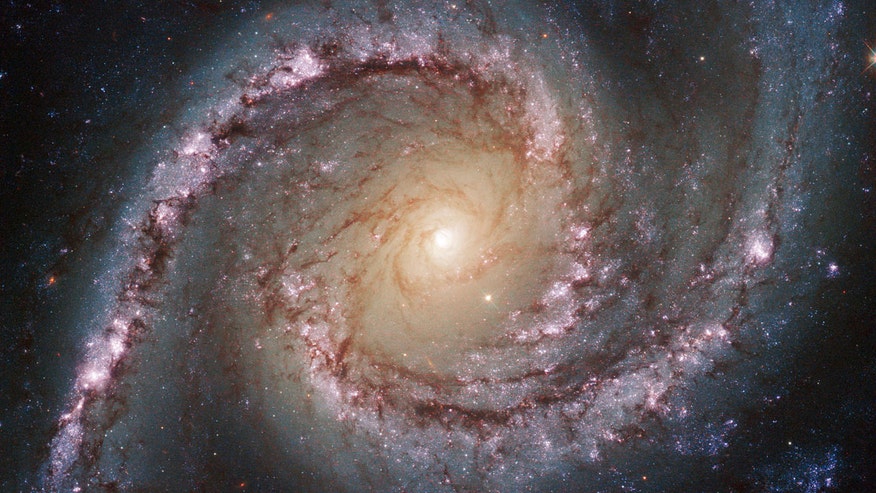Scientists: What it would be like to enter a black hole

Interstellar travelers who find themselves entering a black hole might want to have some air sickness pills handy. According to a report in an upcoming “Physical Review Letters,” researchers from the Canadian Institute for Theoretical Astrophysics in Toronto have found that interacting ripples in spacetime are capable of creating turbulence in the vicinity of a black hole. “Over the last 20 or so years, theoretical physicists have come to realize that there are many surprising connections between the physics of gravity and black holes, and the physics of seemingly unrelated systems - like fluids (gases and liquids, which can experience turbulent motions),” team member Aaron Zimmerman told FoxNews.com. “This has been a huge area of research, and many theoreticians think we will learn a lot from these connections.”
To understand these connections, Zimmerman says, the researchers had to take into account how physics work in a different universe from our own, one known as Anti-de-Sitter space (AdS), which has a constant negative curvature. In AdS, “when you disturb a black hole, it oscillates for a while and emits ripples of curved spacetime called gravitational waves until it settles down. This process is actually a bit like ringing a bell, which then emits sound waves into the surrounding air.” Turbulence, a flow regime characterized by chaotic property changes known to thrill frequent flyers, occurs here on Earth but only in fluids like air or water. “One signature of the connection,” Zimmerman says, “between black holes and fluids would be to find a way to disturb a black hole so that its oscillations become complicated and begin to look turbulent.” He and his team were able to find a way using a simplified model, mathematically demonstrating that if a black hole is spinning at a great enough rate, it could expel gravitational wave bursts that would collide and create turbulence.
The team found that the turbulence experienced in a black hole would depend on the strength of the oscillations and how massive the hole is. So exactly what would happen if a human being were to fall into one? According to Zimmerman, “As you fall into a black hole, all you feel is the difference in the pull between your head and your feet. In a very large black hole, this pull isn't that strong. For the supermassive black hole at the center of our galaxy, which has more mass than a million Suns, the pull would be very weak, much less than pulling a g on a rollercoaster.” Doesn’t sound too bad. “As you enter a black hole a few times more massive than our sun,” he adds, “the forces would be so extreme you would already have been ripped apart before entering the hole (by which time you are feeling about a billion g's).” Yikes.
In other words, don’t get too close to a black hole. Many people think that a black hole can suck things up like a vacuum cleaner, which Zimmerman says is a common misconception. “They pull on other objects through gravity just like the Sun and the Earth do. The big difference about a black hole is that you can get very close, where the gravity gets really intense. With the Earth, we stand on the surface, and we feel the strongest gravitational pull we can feel from Earth; if you started digging down towards the center, the gravity would get weaker because you'd start putting some of the Earth above you. With a black hole, there's not getting to the surface. You can get closer and closer, and the gravity gets stronger and stronger, until you reach a point where there's no way of resisting the pull of the black hole. That point of no return is called the event horizon, and is often thought of as the surface of the black hole. Anything that gets that close will get pulled further in, with no escape.”
|





